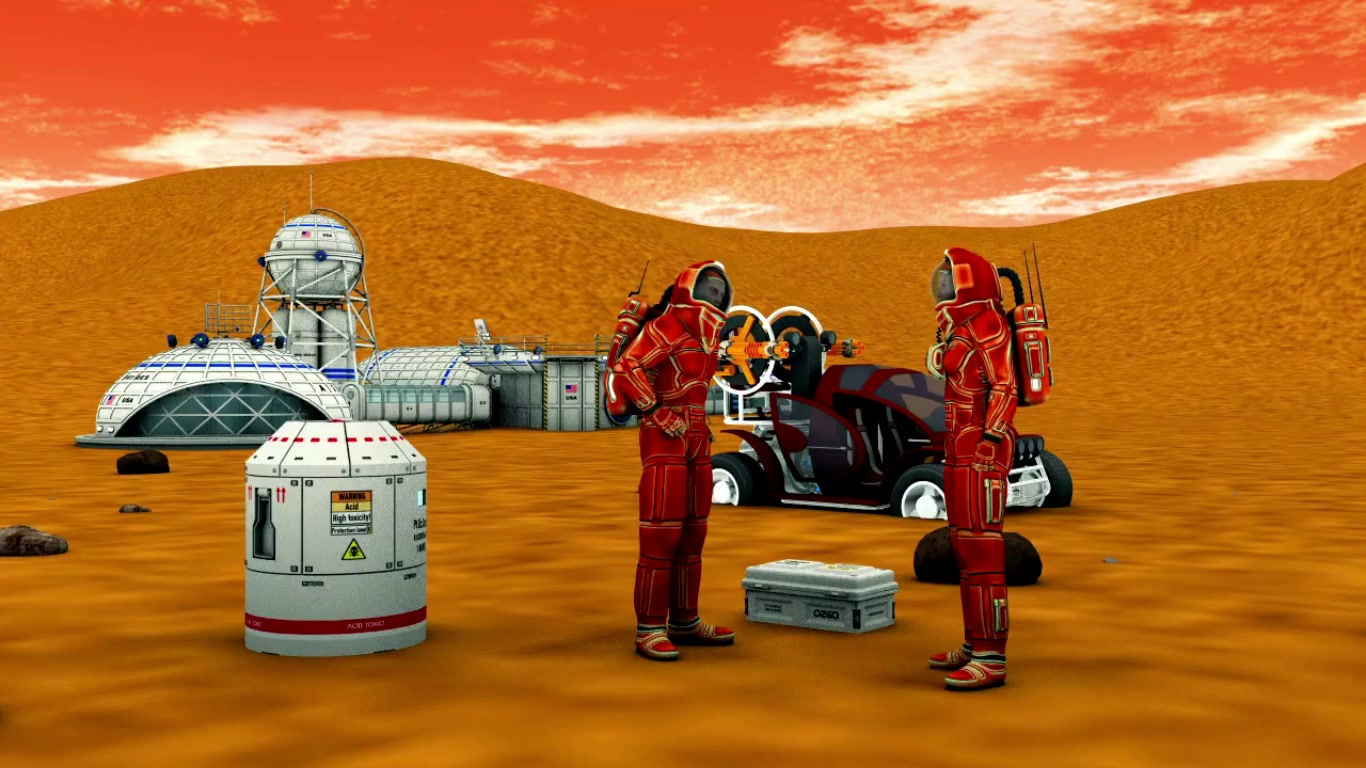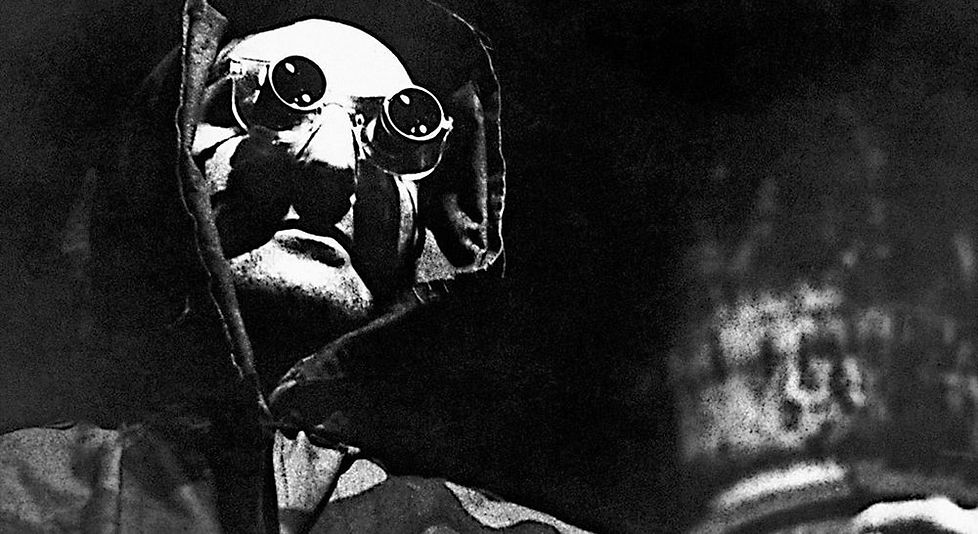

La Jetée
Since I was a child, a favorite “would you rather game” I would play is “Would you rather go into the future or the past.” I’ve noticed that as a child of the space age, when movies filled my imagination with visions of flying cars and space travel and sleek shiny attire, I, and most of my friends, would always say the future. Now, when I pose the question to my own children, they almost inevitably say the past. They have, it would seem, no illusions about what’s on the horizon…
At the apex scene in some ways of french director Chris Marker's 1962 experimental masterpiece La Jetée, precisely such a dilemma is presented.
Thinking back now though, I wonder why we weren't all more fearful of our own future -- we were all living, after all, in the shadow of the possibility of the absolute catastrophe of a nuclear war.
And now we're all talking about it again, aren't we...
There is something exceptional about the possibility of nuclear war. It’s a content that explodes thought or any other medium that attempts to contain it. It is a thought that is somehow paradoxically “unthinkable.” Words on a page so powerful they damage the page itself on which they are written. How do you make a movie about the unthinkable? Do you just ignore its unthinkinability and tell a linear story -- once upon a time some people blew up the world? That just doesn't seem right. So if you did want to somehow try to do some kind of justice to the utter absurdity of such a nightmare, how might you do it? How could you create a movie whose content (the unthinkable) explodes its form? Is it possible that the strange form of La Jetée, the way it disrupts the usual speed at which images flow, is trying precisely to do that? In a sense, a nuclear war would stop time, shifting from movement to a nightmarish stillness. Maybe that effect is produced in the decision to tell a story in still frame photographs?
The word movie derives from "moving picture" and the first thing one notices about the film is that it consists in a series of still photographs, begging the question of whether it is, in fact, a movie at all. But of course, in truth, all films consist in a series of still photographs -- lined up 24 frames per second -- creating the illusion that we are seeing movement. There is, then, a trick, an illusion (a shadow?) at the heart of any movie. They're really kinda like elaborate flip books.

The form, then, of this film makes it already implicitly self-referential -- it's refusing to play along with a certain cinematic illusion and in so doing exposes that illusion. The film's frames aren't parceled out in frames per second, but rather seconds per frame. Or maybe the movie is trying to disrupt our experience of time on some other, more personal, psychological level. Maybe it's about memory...Or maybe it's about time travel...
Let's talk about memory – that strange phenomenon of reflection that makes a duality of us all, both the creator and spectators of images. When we remember, in the present, we “see” images of our past in the “theatre” of our minds. Indeed, when we take photographs to help in this venture, we take leave of the present, so that in the future, we can once again take leave of the present, and remember the past. In this movie, the present is catastrophically bleak, and taking leave of that present to remember the past would make perfect sense. Memory, itself a kind of mental time-travel, anticipates the more robust time-travel the protagonist will engage in in the movie multiple times – time-travel not for the sake of temporary escape from the horrors of the present, but in order to truly escape and transform it.
Paris, as presumably much of the world, has been destroyed by nuclear bombs.
All survivors are living underground.
How can we interpret the whispering of those conducting the experiments?
They figure out how to time-travel and their last ditch attempt to save the human race is to send someone either into the future or the past to get, and bring back, resources that will help them survive. The plan eventually works, but when we come into the story, they're addressing a glitch: while they can send people into another time (past or future), the shock seems to be too much for them and they lose their minds and are unable to complete the mission. So they look for subjects who have a really strong connection to the past, hoping that, as a result of that connection, they’d be able to function there and make their way back. And that's how they find our protagonist.
He hangs out in the past for awhile, but eventually finds himself in the future to seek assistance. We learn that "since humanity [the future humanity, that is] had survived, they could not refuse to its own past the means of its own survival." That is, he seeks help from the future and they literally cannot turn him away. This is an interesting take on the more familiar theme of time-travel movies in which the protagonist goes into the past and "cannot" disturb anything, less they make their having time traveled in the first place impossible (and hence making their disturbing anything impossible). That's often referred to as the "grandfather" paradox (you can't go back in time and kill your gradfather, because in doing so, you would make it impossible for you to exist at all, and so impossible to go back in time and kill him.)
But this is a very different situation. In this case, it's the future that can't do anything that would negatively affect the past, lest it destroy itself, and the time-traveler as travelled to the future to demand that they do what he asks them to do, in the(ir) present, lest they destroy the past -- and their action of ignoring his request would literally destroy the past -- and thereby destroy their ability to choose not to do what he asks. He asks them, that is, to do what needs to be done in order to save the past. What's really fascinating here is that they don't do so necessarily out of any kind of altruistic desire to help others. They do so to
help themselves. If they don't help the past, their present (as the future of those they would be helping from the past) will be destroyed. They are absolutely logic-bound to help. They have zero free-will in this moment. If they did, they could choose the event of not helping. But if they didn't help, they wouldn't exist, and if they didn't exist, they couldn't not help. Not helping, then, is a logical impossibility. It cannot exist, anymore than a square circle can exist. Not helping would be an event that explodes its own reality. If they did it, they would instantly dissapear.
Like a nuclear war?